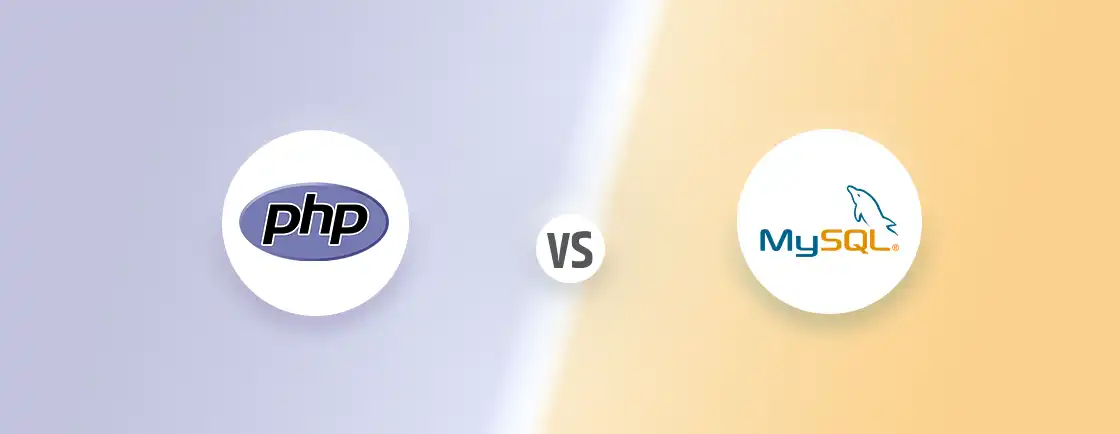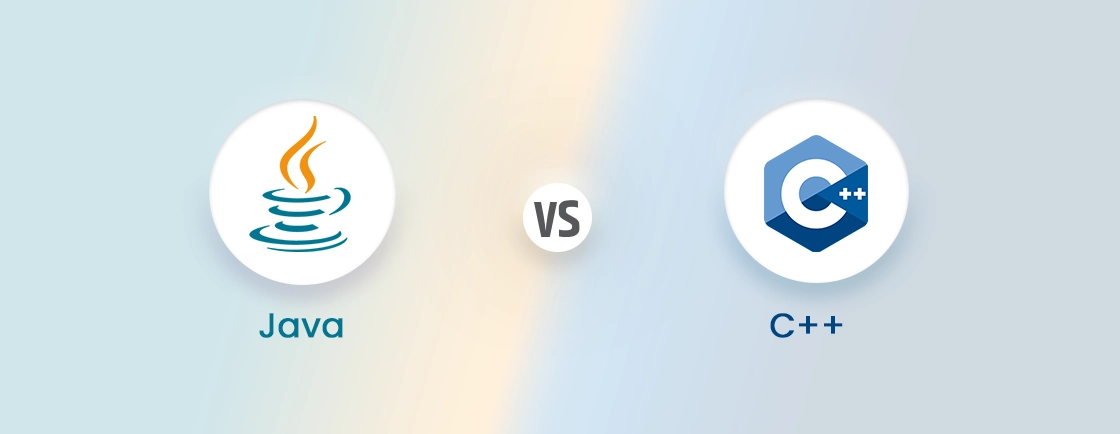Quick Summary
- This guide provides a complete comparison between C# and PHP for web development, helping you choose the right language for your project.
- We cover key differences, even type safety, execution, and performance capabilities.
- Discover when to choose C# for enterprise applications, high-traffic systems, cross-platform solutions, and large distributed teams requiring more tooling power.
- Learn when PHP is ideal for fast prototyping, CMS, bootstrapped startups, and solo developers seeking quick deployment.
- Compare learning curves, development speed, community support, and popular frameworks (ASP.NET Core vs Laravel/Symfony/WordPress) to make an informed decision.
Table of Contents
C# is the most versatile and enterprise-grade language from Microsoft. It is the basis on which major companies and game engines run even today. PHP is another web-based scripting language that runs almost 77% of all websites.
When developing software, programs, or web applications, choosing the right programming language is important. This choice should not be about which language is objectively better. Both C# and PHP are powerful in different situations. The real question is which one solves your specific problem?
Moreover, the selection of coding language directly impacts the project. Be it budget, timeline, team requirements, or maintenance costs.
In this article, you will see the practical differences between these two languages. By the end, you will know exactly which one is best for your development requirements.
Before moving ahead, let’s see where both programming languages stand in the Stack Overflow Developer Survey 2025.
Overview of C# Programming Language
C# (pronounced “C Sharp”) is one of the most prominent, modern programming languages. It is a general-purpose, object-oriented programming (OOP) language made for building any type of application. C# runs on the .NET Framework.
The C# code has the entire ecosystem of tools, libraries, and frameworks that Microsoft has built over decades. It also comes with modern features and more familiar integration with cloud services. The C# syntax is similar to other C-based languages, such as C, C++, and Java, making it easy for developers familiar with these languages to transition to C#.
Furthermore, this OOP language supports principles such as encapsulation, inheritance, and polymorphism. These objects are created from classes, which can be organized and structured with code.
What Makes C# Stand Out?
- Strong Type Safety: C# is a statically-typed language. So variable types must be declared at compile time to catch errors early in the development process. This results in fewer unexpected crashes in production.
- .NET Framework: The C# language is used with the .NET Framework. It is a platform for building Windows applications. The .NET Framework provides a large set of libraries for developing various types of applications.
- Common Language Runtime (CLR): The C# code is compiled into an intermediate language called CIL (Common Intermediate Language) or MSIL (Microsoft Intermediate Language). This code is then executed by the Common Language Runtime (CLR).
- Integrated Development Environment: Visual Studio is the preferred IDE for C# development. It is a go-to environment for developers, with a rich set of tools for coding, debugging, testing, and profiling apps.
- Modern Features: C# continues to evolve, with new language features introduced in each version. Recent additions include records, pattern matching, and nullable reference types. It even comes with LINQ (Language-Integrated Query) and Async/Await modules.
- Cross-Platform Development: With the introduction of .NET Core (now known as .NET 5 and later), C# has become more cross-platform. Developers can build and run C# applications on various OS, like Windows, Linux, and macOS.
- Application Types: C# is used to develop a wide range of applications. Be it desktop applications like Windows Forms, web applications like ASP.NET, mobile apps like Xamarin, cloud services, and more.
Feel free to jump into the Reddit discussion on C#, where you’ll get a different perspective.
The Trade-Offs with C#
- Learning Curve: C# is easier than C++, but harder than PHP. You need to understand the object-oriented design and the .NET ecosystem. You also need to know how to use Visual Studio.
- Hosting Costs: While .NET Core made C# cross-platform, hosting costs are higher than with PHP. Dedicated servers or cloud platforms like Azure are expensive. A simple C# website might cost $20-50 per month. The same PHP site might cost $5-$15 per month.
- Community Size: The PHP community is larger, specifically for web development. Finding PHP solutions online takes seconds. C# has a large community, but it is more widely used in game development, software, and desktop applications. Web-specific C# resources are fewer.
Overview of the PHP Programming Language
PHP (Hypertext Preprocessor) is a server-side scripting language designed specifically for building websites. It powers WordPress, Drupal, Magento, and millions of other websites. It was originally created by Rasmus Lerdorf in 1994.
Unlike C#, PHP is simple to learn. You can embed PHP directly into HTML. It is one of the best web development languages available. PHP tries to make your code work rather than throwing errors. Its simplicity, flexibility, and community make it a popular choice to build web applications.
In addition, PHP syntax is similar to other C-based languages. That makes it very simple for developers familiar with languages like C, C++, or Java to learn PHP. So developers can easily create dynamic web pages and interact with databases.
Here is a Reddit discussion thread on PHP, different perspectives in a single view.
What Makes PHP the Best Language for Web Development?
- Fast Development Cycle: You write code, save the file, and refresh your browser. There is no compilation or big build processes. This speed allows you to prototype ideas quickly and iterate based on feedback.
- Incredibly Low Barrier to Learn: Beginners can grasp PHP basics in days, thanks to its simple syntax. Error messages are clear, making PHP ideal for small teams, freelancers, and startups with limited budgets.
- Embedding in HTML: PHP code is embedded directly into HTML, so developers can mix server-side logic with HTML markup. PHP code is enclosed within <?php … ?> tags.
- Dynamic Typing: Variable types are determined at runtime because of dynamic typing. The result is fast development, but data types should be handled with care.
- Web Development Frameworks: PHP can be used without a framework. However, several web development frameworks, such as Laravel and Symfony, have gained popularity. These frameworks include their own structures, reusable components, and best practices for web development.
- Database Connectivity: PHP provides support for interacting with databases. It has built-in extensions for various database management systems, with MySQL being a popular choice.
- Open Source: PHP is an open-source language, and its source code is freely available. That has contributed to its widespread adoption. Based on PHP, WordPress alone powers 43% of all websites.
- Large Ecosystem: PHP has a vast ecosystem of extensions and libraries that extend its functionality. These are tools for image processing, PDF generation, encryption, and more.
- Community and Documentation: PHP has a large and active community, which contributes to forums, online resources, and documentation. The official PHP manual is easy to use and a valuable resource for developers.
- Integration with Web Servers: PHP works well with various web servers, with the Apache server being one of the most commonly used. It can also be used with other servers, such as Nginx.
- Low Cost Production: PHP hosting is widely available and inexpensive because PHP runs on almost any server. There are even plans for $5-10/month. You can even use free hosting.
- Simple Integration: PHP integrates easily with MySQL, PostgreSQL, and other databases. It plays well with HTML, CSS, JavaScript, APIs, and virtually every web technology.
The Downsides of PHP
- Type Safety Issues: PHP doesn’t require type declarations. You can accidentally assign a string to a variable expecting a number, and PHP will try to make it work. This is great for rapid development, but causes bugs in production.
- Runtime Errors: Because PHP is interpreted, errors happen during execution, not during development. You need solid testing practices to catch issues.
- Performance Limitations: PHP is slower than compiled languages like C#. A C# API might handle 10,000 requests per second. The same PHP API might handle 1,000-2,000. For small-to-medium websites, it is okay. For high-traffic applications, it becomes a problem.
- Legacy Reputation: Older PHP code was notoriously messy. Before frameworks and modern standards, PHP sites had tangled, hard-to-maintain code. While modern PHP is professional, this reputation still lingers.
C# vs PHP: A Quick Comparison Table
| Factor | C# | PHP |
|---|---|---|
| Primary Use Case | Enterprise apps, games, desktop software, complex systems | Websites, content management, and rapid web development |
| Programming Paradigm | Object-oriented | Procedural/Object-oriented |
| Type System | Strongly typed and enforced | Weakly typed and flexible |
| Execution | Compiled to intermediate code | Interpreted at runtime |
| Speed | Fast. Handles high traffic easily | Good enough for most sites. Slows under extreme load |
| Learning Curve | Moderate to steep | Easy to beginner-friendly |
| Hosting Cost | $20-100+/month | $5-20/month |
| Development Speed | Slower initially, faster at scale | Faster initially, slower for large projects |
| Code Safety | Errors caught during development | Errors caught during execution |
| Best Framework | ASP.NET | Laravel, Symfony, WordPress |
| Best For | Large teams, complex logic, enterprise clients | Solo developers, startups, and content sites |
| Community and Ecosystem | Large and active | Very large and active |
Major Differences Between C# and PHP for Web Development
Type Safety
C# requires you to declare types: int age = 25;. PHP lets you assign $age = 25; and later change it to $age = “twenty-five”;. C# catches your mistake immediately.
PHP might not discover it until a user reports a bug. But the C# strictness also means more code to write.
Let’s see this demo with a code example:
// C# Example: Type Safety
int age = 25; // Correct: age is an integer
// age = "twenty-five"; // Compile-time error: Cannot convert string to int
Console.WriteLine(age);
<?php
// PHP Example: No Strict Type Safety
$age = 25; // $age is an integer
$age = "twenty-five"; // Allowed: $age is now a string
echo $age;
?>
Explanation:
- In C#, trying to assign a string to an int variable causes a compile-time error.
- In PHP, the variable $age can hold any type and can be changed from an integer to a string without error. This may cause bugs to appear only at runtime.
Compilation and Interpretation
C# code is compiled before running. The compiler checks everything, and if there are any errors, the compilation fails. Users never see broken code.
PHP code is interpreted as it runs. PHP checks code line by line, making it quick to change but riskier in production.
Performance & Speed: C# applications run faster and use less RAM because compilation optimizes the code. A simple counter-hit API in C# returns responses in milliseconds.
The same in PHP will take 10-50 milliseconds.
Learning and Development
C# is slower to learn, but once mastered, development speeds up. A C# developer writing logic spends less time debugging because the compiler catches issues up front.
PHP is quick to learn and quick to write initial code, but slower to debug because errors can hide in production.
If you want help with web development through C# or PHP, then consult with our web developers for hire today!
Explore related blogs on tech comparisons:
When to Choose C#?
Choose C# when you have any of these situations:
- If your project requires thousands of lines of code across multiple modules. For example, banking systems and healthcare platforms.
- If you want to build real-time systems, high-frequency trading platforms, or APIs that handle millions of requests, you need C# speed.
- You need a cross-platform solution that can run on Windows, Mac, and Linux.
- If you are building for enterprise clients, corporations trust Microsoft.
- If your application has run perfectly for years with minimal downtime, the C# compile-time checking and strong typing matter more than rapid prototyping.
When to Choose PHP?
Choose PHP when you have any of these situations:
- If you need to launch quickly, PHP gets you there. WordPress with plugins can launch a professional website in days.
- If you are bootstrapped or self-funded, cheap PHP hosting can save you thousands annually.
- If content is your core, blogs, news sites, portfolio websites, and CMS all benefit from the PHP ecosystem.
- If you are a solo developer or a small team. As there is no steep learning curve and no IDE learning.
- If you want flexibility, it is powerful for experimental projects.
- If your users expect low latency. PHP 8+ performance improvements are fast enough for 99% of websites.
- If you have an existing PHP application, upgrading to a newer PHP version and optimizing it is smarter.
Final Verdict
There is no clear “champion” between C# and PHP. Both languages have their own strengths and weaknesses. That makes the choice highly dependent on your specific project needs, preferences, and resources.
Both languages have thriving communities, modern frameworks, and real-world success stories. Your task is not to choose the objectively superior language; it is to choose the right language for your specific challenge. Now that you understand the trade-offs, make your choice with confidence. Both paths lead to successful applications.
Ultimately, the best language is the one that solves your problem within your constraints. If you need more information, consider consulting a professional web development company. Experts can help you choose the most suitable option based on your technical requirements and budget.
FAQs on C# vs PHP for Web Development
Is PHP dying?
No. PHP powers 77% of websites with known server-side languages. It is not dying; it is evolving, as PHP 8+ has significantly modernized the language.
Can I use both C# and PHP in the same project?
Yes. You can build a C# API backend and a PHP frontend, or vice versa. Many large companies use multiple languages together.
Which is easier for beginners?
PHP is easier because its simple syntax, forgiving approach, and instant feedback loop make PHP friendlier for learning web development.
Which makes more money?
C# developers typically earn slightly more approx. $120k-150k average than PHP developers ($100k-130k average) in the US. However, freelance PHP developers can earn well by working internationally.
Can PHP handle enterprise applications?
Absolutely. Modern PHP, with frameworks like Symfony, can handle enterprise-scale applications. Slack, Etsy, and others prove this.
Is C# only for Microsoft products?
No. .NET Core (now just .NET) is open source and runs on Linux and macOS. C# is truly cross-platform now.
Ready to Choose The Right Technology for Your Project?
We will help you choose the right language for your specific goals, timeline, and budget. Book a call with our development team today!





